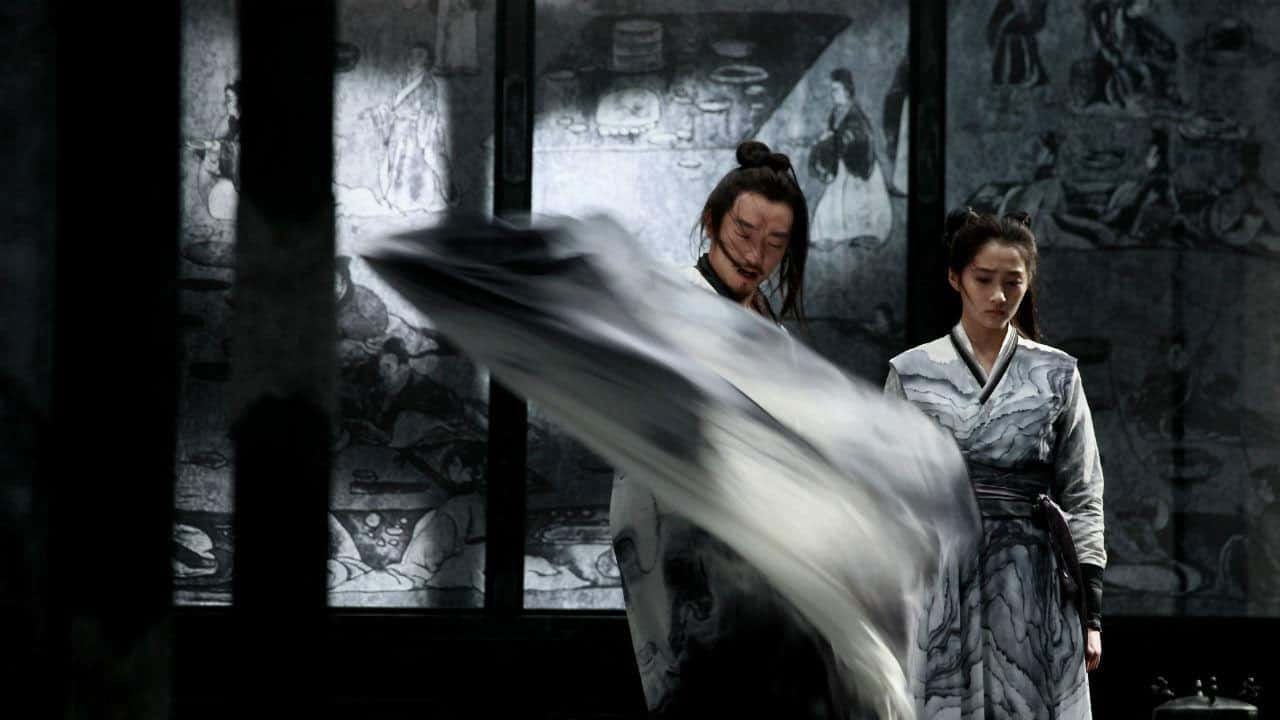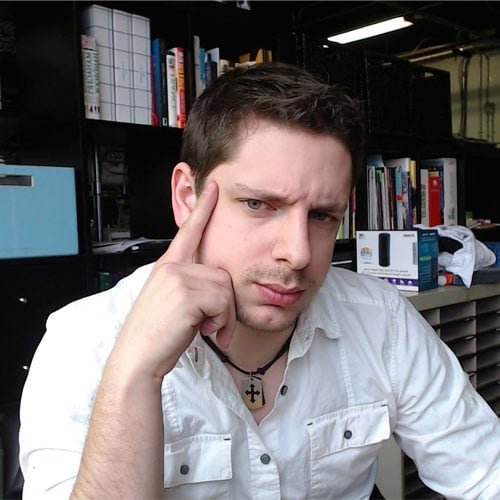Shadow was one of the most visually striking movies at TIFF 2019.
It captures a period in China filled with betrayal and constant struggle and is done in a way only director Yimou Zhang can. The unique use of dark and light captured a sensation rarely seen on Western screens.
Set during China’s Three Kingdom’s era (CE220-280), Shadow tells the story of a kingdom expelled from their homeland and the struggle to reclaim what was once theirs. Sitting at the centre of the struggle is The King of Pei, played by Ryan Zheng. His performance, filled with nuance and excitement, makes it hard to turn away while he is on screen. While at TIFF 2019, CGMagazine sat down with Ryan Zheng to discuss the process of making Shadow and what this film means for Chinese cinema in the West.
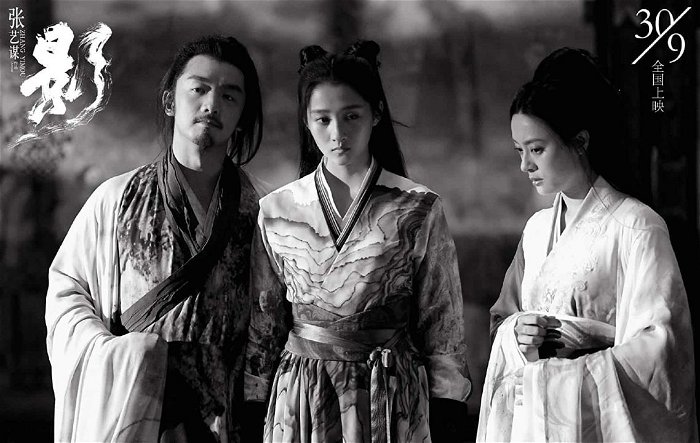
CGMagazine: How did you get involved with the film Shadow?
Ryan Zheng: This is the second time I’ve collaborated with director Yimou Zhang. The first was on the film The Great Wall. After that film, he called me and he said he’s got a new project, and at that time I didn’t know what it was, I didn’t know the script, I didn’t know anything, he just asked me. It was not until about January or February of last year that he called me again and said, “We’re going to do it.”
So I got a script for Shadow, and I got the character of the king and I really liked the character. He is a really fascinating man. He’s a very violent king, he’s a complicated man. He’s a very selfish and ambitious politician. So I really liked the concept of that role because I’ve never tried that kind of character.Even when I saw it in Venice the first time and I was really shocked at how it all turned out.
CGMagazine: One thing I found very striking was the use of dark and light throughout the film. Some of the staging and set design was remarkable. What was it like filming like that?
Ryan Zheng: You know, nowadays it’s easy to get black and white colour using digital means, but we didn’t do that, we made it all
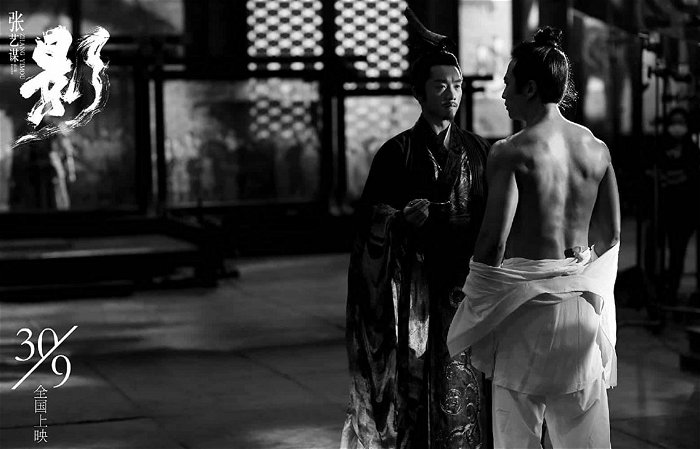
CGMagazine: I want to touch on the concept of
Ryan Zheng: It’s like how you see a lot of tattoos with Yin and Yang in China. It’s Chinese traditional culture. So with that in mind, the Yin and Yang, no one is the bad guy and no one is the good guy. Every person has these positive aspects and negative aspects. Everyone is good and evil. That is all part of the Chinese cultural identity. So we make it into a movie where everyone is complicated. We don’t have the totally bad guy and we don’t have the totally good guy. Everyone has their own ambition.
Even the protagonist in the movie, the other actor, he’s very good looking. He’s very young. He’s very pure. He’s just a simple guy. But at the end of the movie, he still has his evil in his heart. So yeah, it all comes out of Chinese culture.
CGMagazine: Because this is a historically grounded film to an extent, did you do much research into the history or time period to make sure you captured that feeling for the audience?
Ryan Zheng: In China we always do movies or TV shows based on ancient Chinese history, so I think that part of the culture is always around us. You can see it on the TV and you can see it on film and see it at the theatre. So for us, yes sometimes we have to learn how to walk and how to speak that way, but it’s not that hard for us because we always do it.
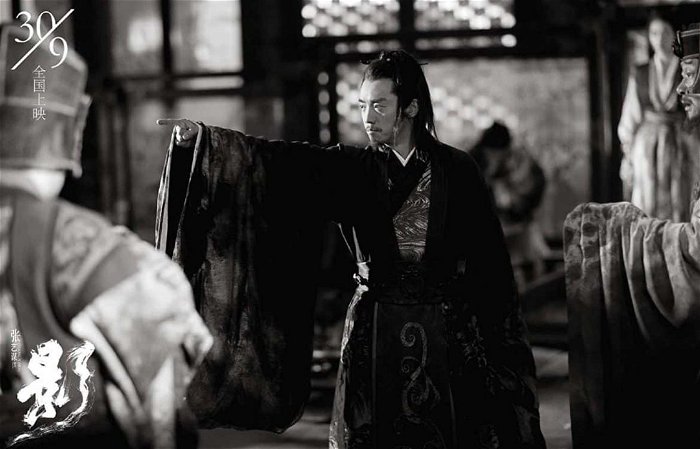
CGMagazine: Jumping off from that note of people in China being immersed in their history, is there ever a fear that Western audiences will miss the nuances in a film like Shadow?
Ryan Zheng: I think the most difficult part is the lines. Even if the translation is perfect, you may still have some mistake. It is hard to convey all aspects of a story told in Chinese perfectly in English, there may be some missed context or concepts.
But ultimately that does not matter. You can understand the story and you can understand that, as you said, everyone has evil and good represented in different ways and you can understand what the movie wants to say.
I think if you see it more than once you will you will find out something new that you didn’t find the first time because there are a lot of nuances and detail in the film.
Even I want to see the movie a second time. In Venice, the first time we saw the movie, the actors and director all sat down and talked about the story. We asked the director what that scene means and who killed his mother and the director would say, “Whatever you think is right”. So I think that is a masterpiece.
CGMagazine: There is a lot of ambiguity at the end of the film. Was that intentional by the director or is there one answer just waiting to be found?
Ryan Zheng: No, I think the film is open to interpretation. As I said, even we asked the director what the end means and the director told us the main character just wants to control his fate.
What we see on screen gives one side of what happened with the protagonist’s story, but what happens after the camera stops rolling is up to the viewer to decide.
CGMagazine: Let’s touch on the fact that your character is very complex. You mention that he’s very violent he’s very motivated. How much of yourself did you inject into that role and how much of that was the director bringing those ideas forth to create that character onscreen?
Ryan Zheng: He just let us craft the characters our own way. I tried to do it like a traditional Chinese king, But we found that it’s just too old of a way to act, so we changed it to be more modern.
I ran with it. I related, I shouted, I whispered, I even said some dirty words. But that’s the way the king would behave because this is his home and his country. He can do anything he wants. So you can tell it’s more comfortable, and it’s more relaxed for the audience to watch and get a feel for the King.
CGMagazine: On that note, for the first half of the film the king is very subdued. He has his bombastic nature but he doesn’t ever leave his throne. He just begins to do that near the end of the film. You’re allowed to let loose you’re allowed to let your craziness out. Was that fun?
Ryan Zheng: It’s fun. I have two pages worth of lines of my own. It’s like a drama on the stage. So when I do it’s really addictive.
We tried it different ways, we even tried on this sound stage. So it’s very playful and I think that’s interesting for actors.This is not the only way to act. You can act different ways. And the decks of Yimou Zhang gave us space to do that. He always said, “Okay, don’t hurry,just take your time on this one.” I had some lines that I did not discover how they would all work until we tried things on the set.
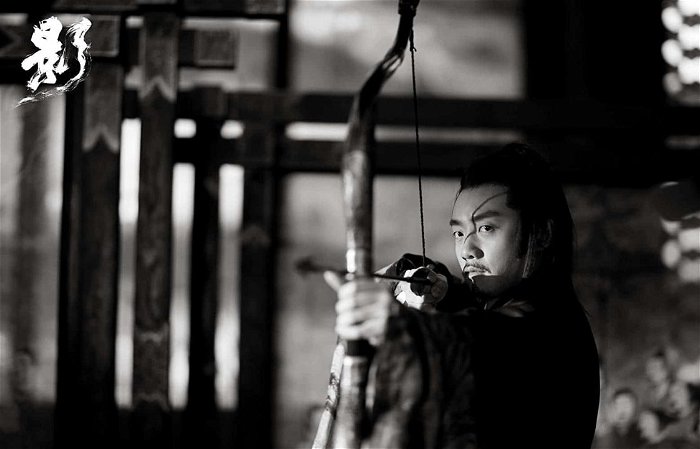
CGMagazine: So when people jump into the film for the first time or when it finally hits screens, what should they be looking for? What are the things that you personally feel viewers should keep an eye out for that really make this film special?
RyanZheng: With The Great Wall, I think maybe Western audiences, for the first time, saw the work of director Yimou Zhang. But that was a Hollywood movie and this time it’s totally a Chinese movie.
It’s totally Yimou Zhang’s movie. We want Western audiences to know what Chinese culture is like, what Chinese movies like Shadow are like. And for me of course, Iwant more audiences to know us. This is a chance for us to be known by Western audiences. So I really appreciate and want to thank director Yimou Zhang for bringing us here to TIFF.
